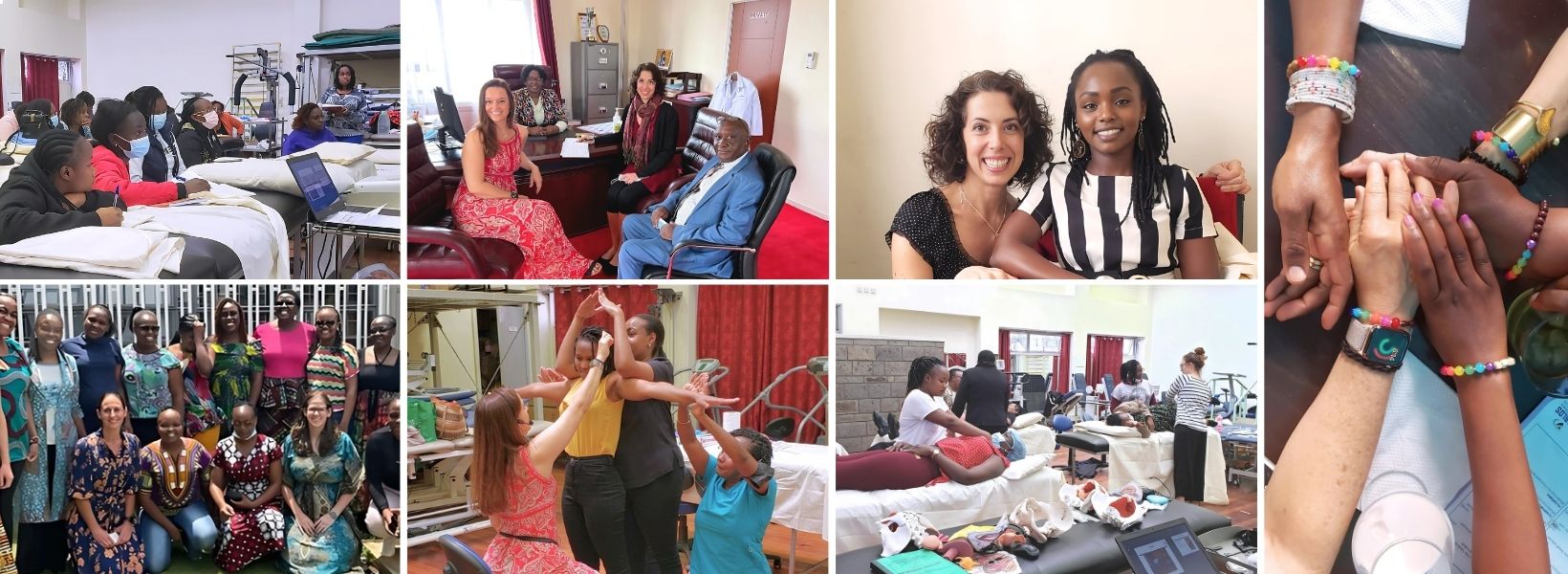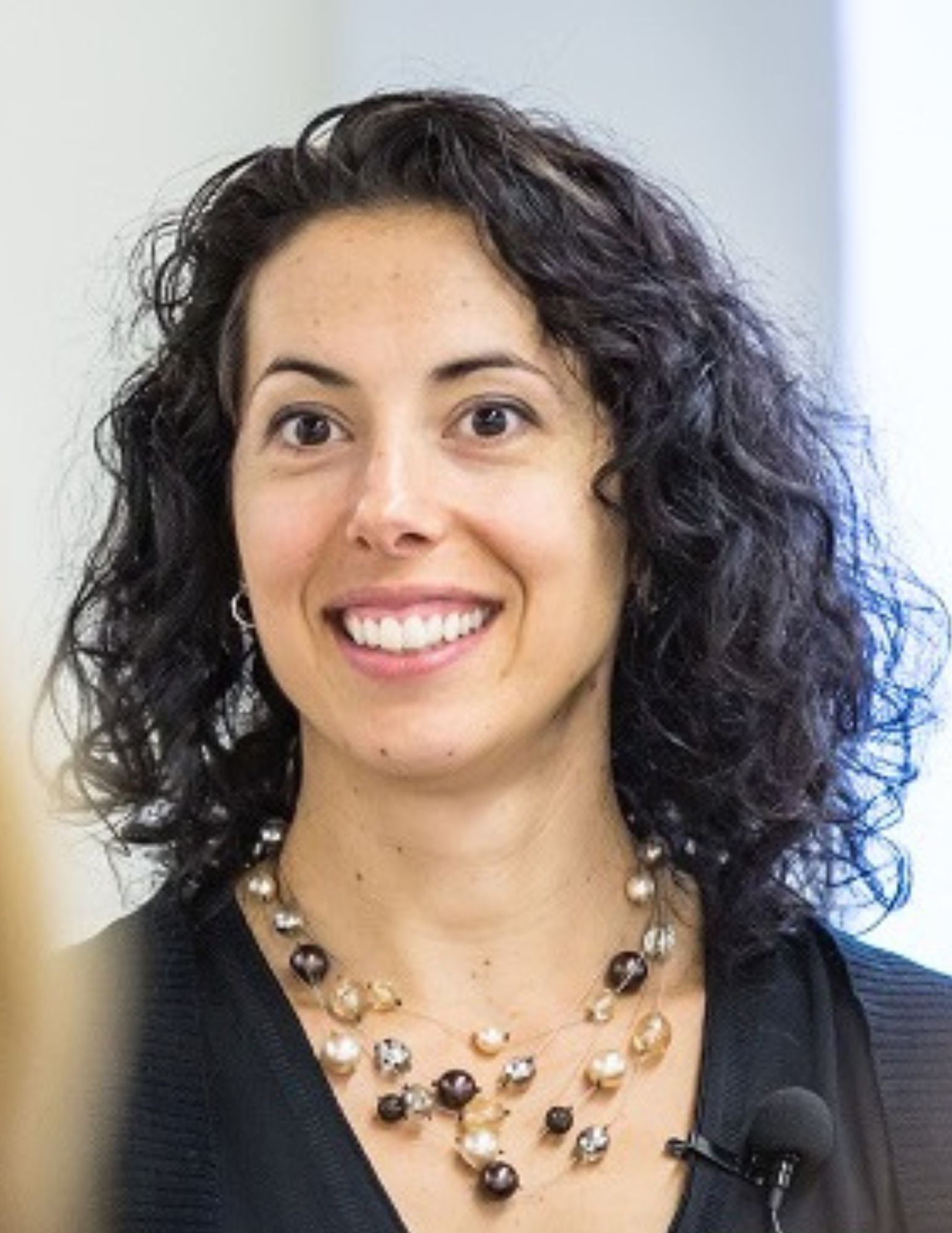The Kenya Pelvic Health Foundation

This specialty of pelvic health has given each of us so many things: purpose, community, and a means to empower and equip so many people to better understand and care for their pelvic health challenges and reach their goals.
But for the rest of the developing world, it’s not like that. Imagine a place where the field of pelvic health simply doesn’t exist. Where women have no choice but to live the rest of their lives with leaking, and community condemnation from birth-induced fistula. Where men suffer in silence with impotence and pelvic pain. Where people with all types of pelvic health conditions must go about their lives hiding and suffering in their private shame.
And then imagine that YOU had the power and influence to change this! To extend your influence, expertise and support all the way across the world to East Africa - to the Amref International University in Nairobi Kenya (AMIU), where even now two cohorts of the FIRST Masters Level Pelvic Health Therapists are busy preparing to revolutionize the understanding and delivery of pelvic rehab in East Africa: Kenya, Uganda, and Ethiopia!
Imagine though, the hurdles these professionals will have to navigate in their cultures, communities, health care systems, referral sources, families, and personal lives. Then imagine what a difference it would make for them to have encouragement, mentorship, and financial support.

The Program
Elizabeth Akincilar and I have been humbled to be a part of this movement through the leadership of the Jackson Clinics Foundation to develop curriculum, recruit teachers, mentors, volunteers, and most importantly raise financial contributions to support this fledgling program. To date, all students have had HALF of their curriculum costs covered through donations alone.
In the development of this program, both Herman & Wallace and the Pelvic Health and Rehabilitation Center generously contributed both online and didactic materials. Several colleagues added their expertise to the curriculum, including Ramona Horton, Dawn Sandalcidi, Juan Michelle Martin, Ebony Jackson, Laura McGuckin, Niko Gaffga, Carolyn Packard, and Christine Stewart.
The curriculum consists of 6 modules:
- Introduction to Pelvic Health
- Pregnancy/Intrapartum/Postpartum
- Pediatrics and Marketing
- Pelvic Pain
- Visceral Mobilization
- Advanced Topics within Pelvic Health
Because AMIU has a presence in over 30 countries in Africa and Asia, the potential for the curriculum to grow and spread is huge.
The Students
In East Africa, the need for pelvic health care is extraordinary, and knowledge about pelvic health conditions is minimal. There are many barriers people with pelvic health concerns encounter in receiving care, and also barriers for students to continue their studies.
Three of the students in a previous cohort had to work night shifts at the hospital for the two weeks we were in class. They spent 8 hours in class, went home to care for their families, then worked 8 hours at the hospital. For. Two. Weeks.
Another student almost dropped out because she had funds to either pay for her tuition or her daughters’ school fees. We were able to connect her with a donor who covered her expenses.
Lives are also being profoundly impacted by the care these therapists are providing in their communities: from the woman who finally bore a child after a decade of struggling with pelvic pain, to the grandmother supporting her grandchildren who was able to go back to work after getting control of her bladder and bowel leakage, to the man who never talked about the abuse he experienced as a child who is now able to have a bowel movement without pain.

The Goals
As we consider the growth of the pelvic health program in Kenya, our goals are several:
- To equip and empower rehab specialists in providing quality pelvic health care to the country of Kenya and now other countries in East Africa.
- To train teaching assistants and faculty members to be proficient in conducting the curriculum independently within three years
- To reduce or eliminate barriers to pelvic health continuing education in Kenya
- This last goal is where our pelvic health family in the US comes in. The cost for the two-year degree is equivalent to $2,000 American dollars. The average PT annual salary is less than $7,000, and participants will have to take 3 weeks off of work per calendar year to participate in the program. Many from outside of Nairobi would have to incur travel and accommodation expenses. This price tag poses a significant barrier.
The total cost of the program is $13,000. We are asking for your help in deferring the cost of the program for as many people as possible, with the goal of paying half of the tuition for the incoming class of thirty people. Our fundraising campaign in 2025 has raised $9000 thus far, with most of this coming from donations during HWConnect, which were matched by Herman & Wallace!
Here’s how you can help:
- Make a tax-deductible donation to the Pelvic Health Program through the Jackson Clinic Foundation.
- Click this secure link and use the carrot to find the Pelvic Health option.
- Host a fundraising activity: perhaps a community education class where the proceeds go to this cause!
- Get on our volunteer list to lead a journal article review, a Grand Rounds discussion, or assist a student in their Legacy project.
- Become a mentor to walk beside a student on their educational journey and beyond.
- Teach an online course for our graduates!
- Donate books or supplies!
For more information on how you can get involved in fundraising or teaching an online class, you can email me (Jenna) at Jennafermi@gmail.com or Liz at elizabeth@pelvicpainrehab.com.
If you would like to learn more about volunteering, please connect with Ebony Jackson Clark at ejacksonclark@gmail.com.
We are so, so very humbled by your kind support.
AUTHOR BIO:
Jennafer "Jenna" Ross, PT, BCB-PMD, PRPC
 Jennafer Ross PT, BCB-PMD, PRPC, (she/her) After graduating from Ithaca College, Jenna began her career as a physical therapist at Spectrum Health in Grand Rapids, MI. Since 2002, she has focused her professional attention on treating women, men, and children with pelvic health disorders. She is energized through education and enjoys her position as adjunct faculty at Grand Valley University, speaking at community events, organizing a regional pelvic floor mentorship and study group, and didn’t necessarily enjoy but survived part-time home-schooling her two daughters. She has been faculty for Herman & Wallace Pelvic Rehabilitation Institute since 2009 and loves to inspire other rehab professionals treating pelvic floor dysfunction. She is the author of the chapter, “Manual Therapy for the Pelvic Floor,” which was published in the book, “Healing in Urology.” Jenna was a contributing writer for the Pelvic Floor Capstone curriculum and also co-authored the continuing education course, “Boundaries, Self-Care and Meditation Part 1” and “Boundaries, Self-Care and Meditation Part 2” with Nari Clemons. She is certified in pelvic floor rehabilitation and biofeedback for pelvic floor disorders. Outside of teaching and treating patients, Jenna loves to spend time with family and friends, run, cook, travel, do yoga, and snuggle with her doggo.
Jennafer Ross PT, BCB-PMD, PRPC, (she/her) After graduating from Ithaca College, Jenna began her career as a physical therapist at Spectrum Health in Grand Rapids, MI. Since 2002, she has focused her professional attention on treating women, men, and children with pelvic health disorders. She is energized through education and enjoys her position as adjunct faculty at Grand Valley University, speaking at community events, organizing a regional pelvic floor mentorship and study group, and didn’t necessarily enjoy but survived part-time home-schooling her two daughters. She has been faculty for Herman & Wallace Pelvic Rehabilitation Institute since 2009 and loves to inspire other rehab professionals treating pelvic floor dysfunction. She is the author of the chapter, “Manual Therapy for the Pelvic Floor,” which was published in the book, “Healing in Urology.” Jenna was a contributing writer for the Pelvic Floor Capstone curriculum and also co-authored the continuing education course, “Boundaries, Self-Care and Meditation Part 1” and “Boundaries, Self-Care and Meditation Part 2” with Nari Clemons. She is certified in pelvic floor rehabilitation and biofeedback for pelvic floor disorders. Outside of teaching and treating patients, Jenna loves to spend time with family and friends, run, cook, travel, do yoga, and snuggle with her doggo.
By accepting you will be accessing a service provided by a third-party external to https://www.hermanwallace.com/





































